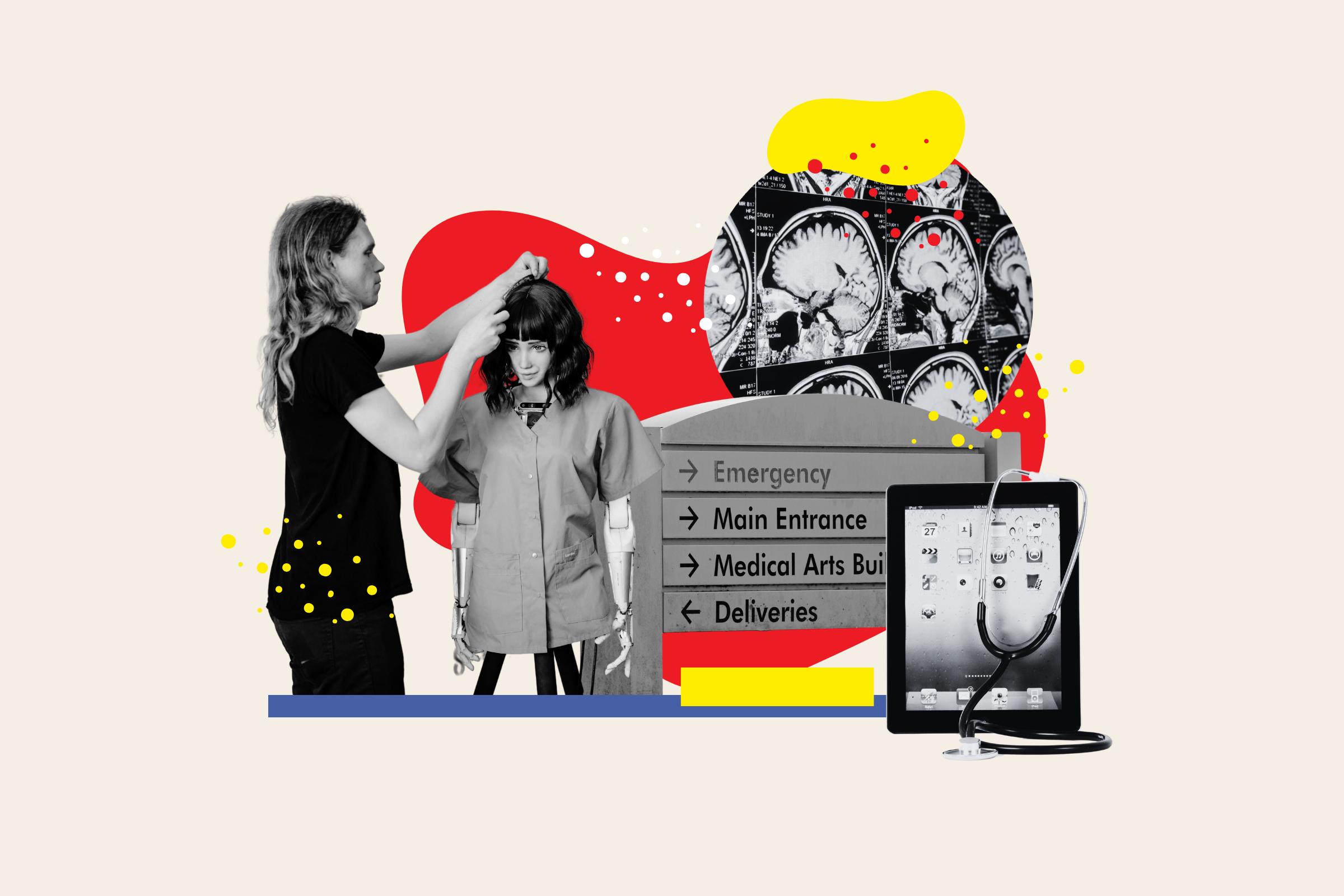Health Tech Titans Clash: Pros & Perils of a Public AI Registry

The management of artificial intelligence (AI) within the healthcare sector presents a complex challenge. All parties involved need to work together to establish sensible guidelines for this new technology; however, they also pondered how such openness could pose certain dangers during a recent discussion among healthcare technology executives. event.
The webinar The event titled "Health Care's AI Playbook: Developing Secure, Intelligent, and Efficient Systems" was held on May 20th. A distinguished panel consisting of Dr. Brian Anderson (the founder and CEO of the Coalition for Health AI), Danny Tobey (global co-coordinator of DLA Piper’s AI and Data Analytics Practice), Dr. Andreea Bodnari (founder of Alignmt.AI), and Dr. Michael Pencina (vice-dean and principal data scientist at Duke Health) addressed queries and engaged with an audience made up primarily of healthcare leaders who make critical decisions within their organizations.
During the conversation, the participants recognized the constraints of applying uniform benchmarks to AI models. They noted that performance variations can be significant between different organizations due to differing leadership goals, end-users, and patient information.
An attendee asked, "What strategies should we use to efficiently collect the results of AI deployments and emphasize location-specific optimal practices for implementing AI within a nationwide registry for tracking AI outcomes?"
The project is currently ongoing at Anderson's Coalition for Health AI, known as CHAI. Back in February, this nonprofit organization was involved. announced a collaboration with Avanade to create a public registry for their health AI applied model cards. These cards serve as " nutrition labels For AI tools, providing potential users with insights into the technology’s progress and identified risks. The registry consolidates this data—establishing an industry-wide repository of information, applications, and lessons learned.
Anderson mentioned that the project is still in its initial phase, but he aims for it to function as a "post-market or post-deployment monitoring network" for theCHAI-affiliated groups.
Anderson stated, "It’s crucial for us to grasp how these models perform at a local level and, notably, to pinpoint variations in their effectiveness across different populations or geographic areas." He gave an instance where data may reveal that a model deteriorates over time—or conversely, consistently delivers favorable results within a surprising medical field. Aggregating this data centrally would enable CHAI and its affiliates to detect patterns, thereby contributing to the expanding repository of insights into artificial intelligence in healthcare.
"We aim at CHAI to develop a public platform where health systems can securely exchange information regarding best practices for deploying and utilizing AI," he went on to explain.
Ultimately, this kind of registry might spur action once new vulnerabilities are identified, noted Bodnari from Alignmt.AI, much like how NIST alerts certified companies about security flaws.
If you participate in a public AI registry, this becomes valuable and practical knowledge that you can utilize," Bodnari stated. "For instance, if you’ve implemented an ambient AI tool and get notified about a vulnerability affecting a particular group of patients, it’s crucial to address this promptly.
Even though Duke Health was one of the original members of CHAI and worked closely on developing the registry initially, Pencini recognized potential privacy issues that might restrict participation. Companies and healthcare providers might be reluctant to disclose specific data or make it available to extensive networks: “It’s about having the willingness to participate,” he stated.
Tobey, possessing both an M.D. and J.D., examined the issue from both legal and medical perspectives. Given that the health AI sector remains mostly without regulation, he proposed that legislative incentives might be necessary to encourage healthcare systems to share their data.
When you establish repositories and generate reports, institutions face risks by being involved in those processes," Tobey stated. "A highly beneficial action for the government would be to encourage positive conduct through incentives.
This could look like safe harbor or presumptions of prudence for organizations that participate in voluntary disclosures or registries, Tobey said.
Anderson concurred, stating that CHAI is looking into developing an AI-specific patient safety outcomes registry to improve safeguards for its members.
"Anderson noted that it’s essential and fitting to highlight the necessity for such incentives and safeguards within healthcare systems so they can achieve the level of transparency required. This emphasis is particularly crucial now as we’re witnessing some unforeseen outcomes of AI each week, with many implications still unknown to us," he stated.
Interested in keeping the discussion going? Click here to request a free pass 's The AI Impact Summit will be held in Sonoma, California, from June 23 to 25.
Related Articles
- AI Agents Have Become Hospitals' Latest "Staff." We Reached Out to Verify Them.
- Average Healthcare System Review Uncovers 70 Silent AI Implementations, CEO Reports
- One of the Hospital’s Highest-Grossing Treatments Comes with an Overlooked Price Tag
Start your unlimited trial
Belum ada Komentar untuk "Health Tech Titans Clash: Pros & Perils of a Public AI Registry"
Posting Komentar